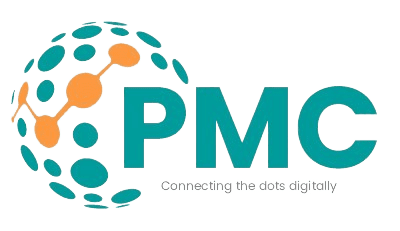
Understanding brand identity is essential for business success. Brand identity distinguishes a company from competitors and facilitates connection with the target audience. It encompasses brand values, mission, vision, and personality.
To define brand identity, businesses must address key questions:
- What does the brand represent?
- What are its core values?
- What is the brand’s personality?
- What makes it unique
Answering these questions helps establish a strong foundation for marketing strategies. Once brand identity is clearly defined, effective communication to the target audience becomes possible.
This enables the creation of a strong, consistent brand image that resonates with customers. Brand identity should be reflected in all aspects of the business, including logo design, visual elements, messaging, and customer experience. Maintaining consistency with brand identity builds trust and loyalty among customers, which is crucial for long-term success.
Key Takeaways
- Your brand identity is the essence of who you are as a company, and it should be reflected in all aspects of your marketing strategy.
- Identifying your target audience is crucial for creating personalised and effective marketing campaigns that resonate with your potential customers.
- Customising your marketing strategy allows you to tailor your approach to different segments of your target audience, maximizing the impact of your efforts.
- Leveraging digital marketing tools such as social media, email marketing, and SEO can help you reach a wider audience and track the effectiveness of your campaigns.
- Crafting compelling content that is relevant and valuable to your audience is key to engaging and retaining customers.
- Measuring and analysing the results of your marketing efforts is essential for understanding what works and what doesn’t, and for making informed decisions about future strategies.
- Adapting and evolving your marketing strategy based on the insights gained from analysis is crucial for staying relevant and competitive in a constantly changing market.
Identifying Your Target Audience
Identifying your target audience is a crucial step in creating a successful marketing strategy. Your target audience is the group of people who are most likely to be interested in your products or services. To identify your target audience, you need to conduct thorough market research and gather data about your potential customers.
This can include demographic information such as age, gender, income, and location, as well as psychographic information such as interests, values, and lifestyle. Once you have a clear understanding of your target audience, you can tailor your marketing efforts to effectively reach and engage with them. This can include creating targeted advertising campaigns, developing personalised content, and choosing the right channels to reach your audience.
By understanding your target audience, you can ensure that your marketing efforts are focused and effective, leading to better results and a higher return on investment.
Customising Your Marketing Strategy

Customising your marketing strategy is essential for reaching and engaging with your target audience. One size does not fit all when it comes to marketing, so it’s important to tailor your approach to the specific needs and preferences of your audience. This can include customising your messaging, content, and advertising to resonate with your target audience.
By customising your marketing strategy, you can create a more personalised and relevant experience for your customers, which can lead to higher engagement and conversion rates. In addition to customising your messaging and content, it’s also important to choose the right marketing channels to reach your target audience. This can include social media, email marketing, search engine optimisation, and more.
By choosing the right channels, you can ensure that your marketing efforts are reaching the right people at the right time. Customising your marketing strategy can help you stand out from the competition and build stronger relationships with your customers.
Leveraging Digital Marketing Tools
Leveraging digital marketing tools is essential for reaching and engaging with your target audience in today’s digital world. There are a wide variety of digital marketing tools available that can help you reach your audience more effectively and efficiently. This can include tools for social media management, email marketing, search engine optimisation, content creation, and more.
By leveraging these tools, you can streamline your marketing efforts and reach a larger audience with less effort. One of the key benefits of digital marketing tools is the ability to track and measure the success of your marketing efforts. This can include tracking website traffic, engagement metrics, conversion rates, and more.
By analysing this data, you can gain valuable insights into the effectiveness of your marketing strategy and make informed decisions about how to improve it. Digital marketing tools can also help you automate certain tasks, saving you time and allowing you to focus on other aspects of your business.
Crafting Compelling Content
Crafting compelling content is essential for capturing the attention of your target audience and driving engagement with your brand. Compelling content can take many forms, including blog posts, videos, infographics, social media posts, and more. The key is to create content that is valuable, relevant, and engaging for your audience.
This can include addressing their pain points, answering their questions, or entertaining them with interesting and relevant information. In addition to creating compelling content, it’s also important to optimize it for search engines to ensure that it reaches a wider audience. This can include using relevant keywords, optimising meta tags, and creating high-quality backlinks.
By crafting compelling content that is optimised for search engines, you can increase the visibility of your brand and attract more traffic to your website.
Measuring and Analysing Results
Measuring and analysing the results of your marketing efforts is essential for understanding what is working and what isn’t. This can include tracking key performance indicators such as website traffic, engagement metrics, conversion rates, and more. By analyzing this data, you can gain valuable insights into the effectiveness of your marketing strategy and make informed decisions about how to improve it.
In addition to tracking key performance indicators, it’s also important to gather feedback from your customers to understand their preferences and needs. This can include conducting surveys, reading reviews, and engaging with customers on social media. By gathering feedback from your customers, you can gain valuable insights into how to improve your products or services and better meet their needs.

Adapting and Evolving Your Strategy
Adapting and evolving your marketing strategy is essential for staying ahead of the competition and meeting the changing needs of your target audience. The digital landscape is constantly evolving, so it’s important to stay agile and be willing to adapt your strategy as needed. This can include testing new tactics, exploring new channels, or adjusting your messaging based on customer feedback.
By adapting and evolving your strategy, you can ensure that your marketing efforts remain effective and relevant in a rapidly changing environment. This can help you stay ahead of the competition and continue to drive growth for your business. It’s important to regularly review the performance of your marketing strategy and make adjustments as needed to ensure that it continues to deliver results for your business.
In conclusion, understanding your brand identity, identifying your target audience, customising your marketing strategy, leveraging digital marketing tools, crafting compelling content, measuring and analysing results, and adapting and evolving your strategy are all essential components of a successful marketing strategy. By focusing on these key areas and continuously refining your approach, you can create a strong foundation for long-term success and drive growth for your business.
Frequently Asked Questions (FAQs)
What are tailored marketing solutions?
Tailored marketing solutions are customized strategies and tactics designed to meet the specific needs and goals of a business. These solutions are personalized to target a specific audience and achieve the desired results.
How can tailored marketing solutions empower business growth?
Tailored marketing solutions can empower business growth by effectively reaching and engaging with the target audience, increasing brand awareness, driving sales and revenue, and building a strong and loyal customer base. By focusing on the unique needs of the business, tailored marketing solutions can deliver better results and maximise return on investment.
What are the key components of a tailored marketing solution?
Key components of a tailored marketing solution may include market research, audience segmentation, personalised messaging and content, strategic media placement, data analysis, and ongoing optimisation. These components work together to create a customized approach that aligns with the business objectives and resonates with the target audience.
How can businesses elevate their brand with tailored marketing solutions?
Businesses can elevate their brand with tailored marketing solutions by creating a strong and consistent brand identity, delivering personalized and relevant messaging, establishing a unique value proposition, and building a positive and memorable brand experience for customers. Tailored marketing solutions can help businesses differentiate themselves in the market and stand out from the competition.
